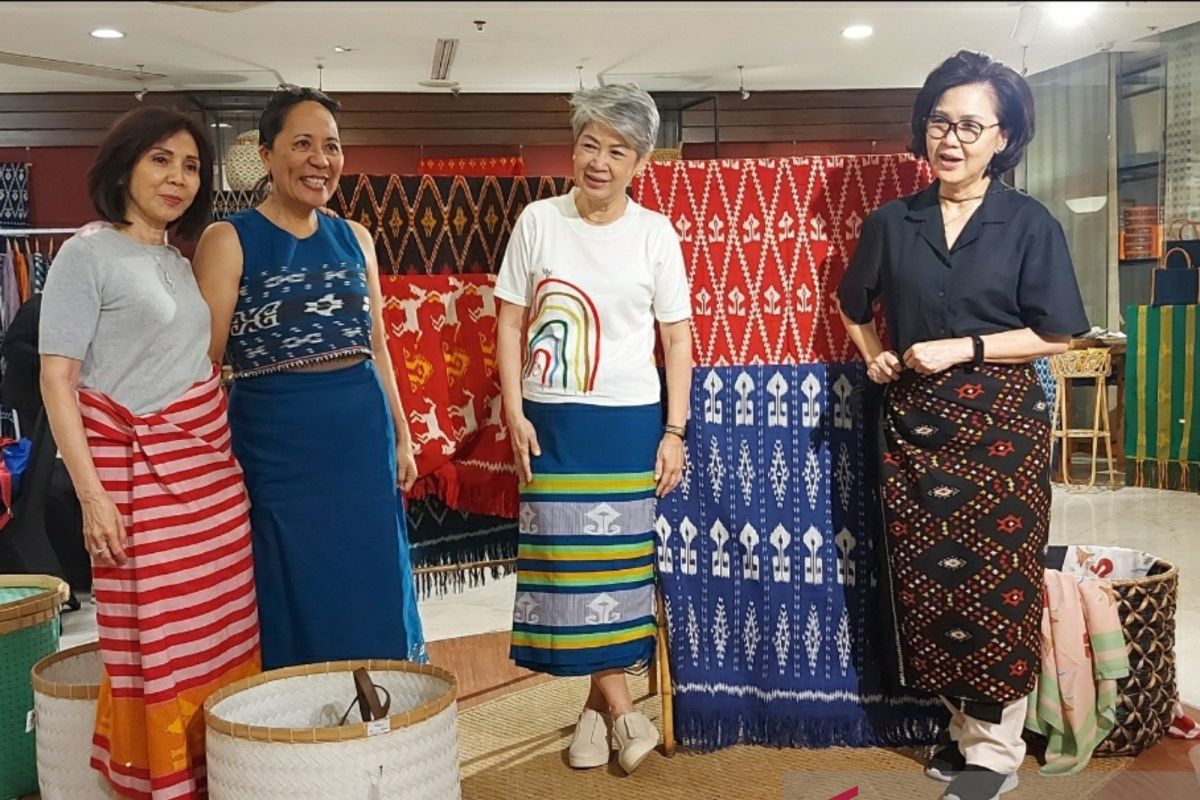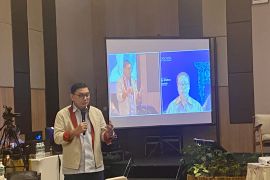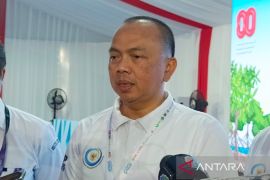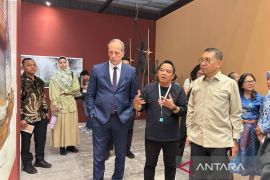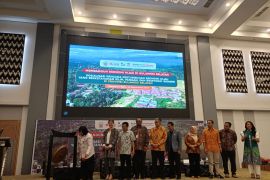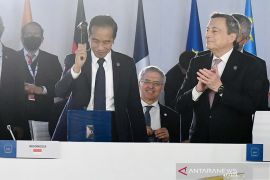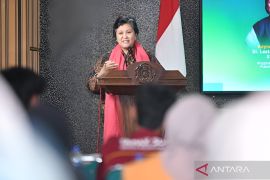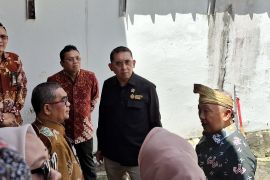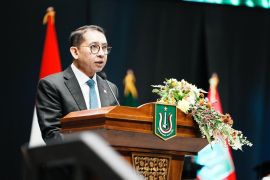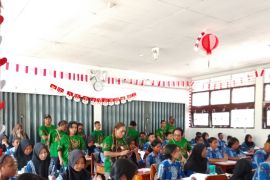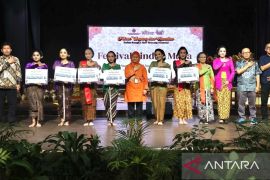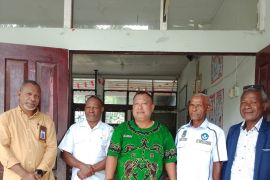The Meteorology, Climatology, and Geophysics Agency (BMKG) warns that rising air temperatures cause the global warming process to continue and have an impact on the phenomenon of climate change.
One of the main causes of climate change is the continued increase in greenhouse gas emissions that had an impact on increasing air temperature.
Fast fashion industry, or the term for the textile industry with various fashion models that always change in a short time and do not last long, has pushed the development of textile production at quite a rapid pace.
However, data from the United Nations Environment Program (UNEP) states that the fashion industry accounts for almost 10 percent of the global carbon emissions.
This figure is greater than the combined figures from the aviation and shipping sectors. The fashion industry also contributes nearly 20 percent to global waste water, or about 93 billion cubic meters from textile dyeing.
Around 92 million tons of textile waste is estimated to be produced annually globally. That figure has the potential to jump to 134 million tons per year by 2030.
To overcome the climate crisis triggered by increasing carbon emissions from the fashion industry, sustainable economic activities need to be increased, so that the industry's carbon footprint can be reduced.
Maria Gabriella Isabella is one of the people to have succeeded in encouraging a sustainable economy through preserving culture and fashion.
Through her social enterprise called Copa de Flores, Isabella and seven of her friends, since 2015, have developed a fashion brand to preserve woven fabric that is the traditional clothing from Southwest Sumba District, East Nusa Tenggara Province.
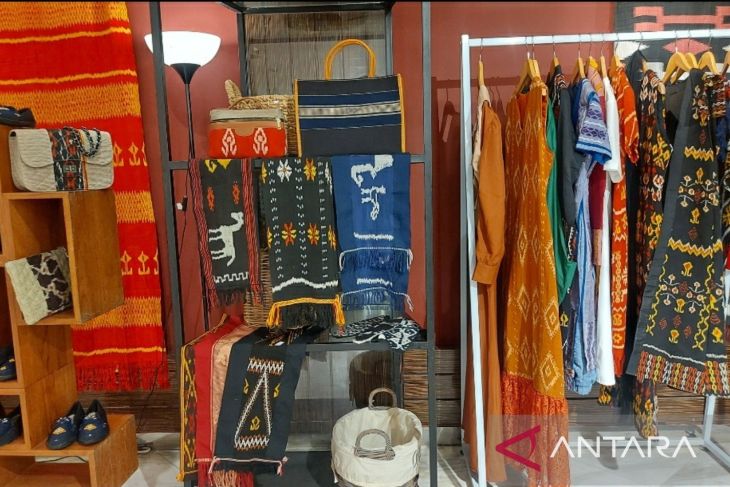
Apart from preserving culture and fashion, preserving woven fabrics also addresses environmental and women's issues.
"Hence, apart from making fashion products that are more fashionable and more suitable for use by all ages, our woven fabric products are also to answer environmental issues and women's issues," Isabella told ANTARA here on Saturday (Oct 14).
Through the development of these woven products, Isabella is creating a movement to pursue a sustainable economy by prioritizing sustainable values in the products she produces.
"So, one of the values that we raise is the value of timelessness," she stated.
This value is a spirit to use clothing for a long time, so that it can also be worn by future generations.
"Hence, these clothes are not meant to be worn just once but can also be worn by our children or grandchildren. Hence, this can be used across generations," she remarked.
Woven fabric is considered to be the right instrument for developing sustainable values because this kind of fabric is strong and durable, so it can be used for a long time.
Apart from mainstreaming timeless values in the clothes she makes, Isabella also encourages the zero waste target by utilizing unused fabric scraps into other valuable products, such as necklaces, earrings, and wallets as well as other accessory products.
During the COVID-19 pandemic, she also used the unused fabric to make masks, which at the time was considered to be important to wear to prevent the spread of the coronavirus.
"So, this is truly zero waste," she stated.
Sustainable economy
General Secretary of the Regional National Crafts Council (Dekranasda) Maria Magdalena Anggriani Lele Biri, in the Southwest Sumba Dekranasda Exhibition series also emphasized the importance of preserving culture and the environment through sustainable economic activities.
This effort was carried out by Dekranasda by empowering girls in the age bracket of 15-25 years to adult women in the Southwest Sumba through the culture of weaving to produce woven fabrics that is the traditional clothing typical of that area.
"One of the things we are trying to do (to create a sustainable economy) is recycling woven fabric by utilizing textile waste into derivative products that have new economic value," she stated.
The people of Southwest Sumba are known as producers of woven cloth for generations. Woven fabrics in the area are used for various traditional events, ranging from weddings, deaths, to welcoming guests.
Woven fabrics produced by women from the area, include lambaleko weaving, ikat weaving, and natural weaving.
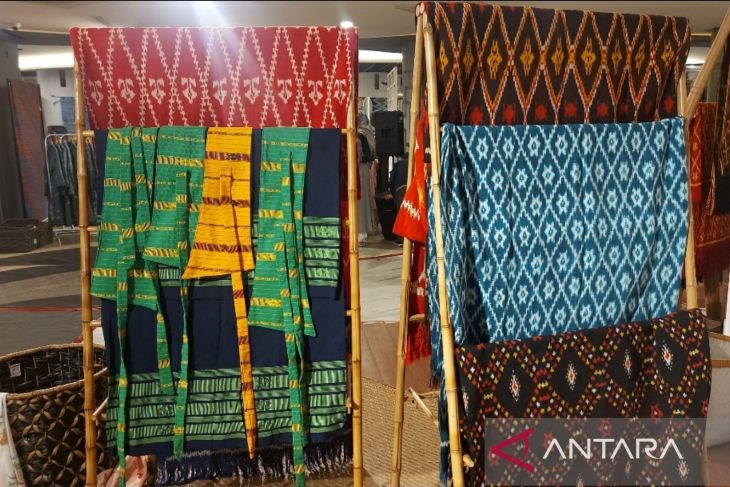
Woven fabric from this area is made from natural materials and through a dyeing process that also comes from natural dyes, so it does not have a negative impact on the environment.
Hence, apart from encouraging economic improvement in the community, sustainable economic activities carried out by women in the area are also closely related to the culture of people in the area.
Hence, Anggriani believes that it is important to continue such empowerment effort through a weaving culture to boost the economy of people as well as to preserve culture and respond to environmental problems.
"Hence, this woven product is not only related to woven clothing but also its derivative products, and through this sustainable economy, we want culture and economic development to be balanced," she affirmed.
Challenges
Although she considers these steps to be important to realize a sustainable economy, Anggriani also does not deny that there are several challenges faced to realize this hope.
One of the challenges is related to human resources.
In empowering weavers in the area, she found that there were still several weavers, who were not ready to commit to producing quality woven products that met market demand.
"This is related to their mindset, so we still have to continuously encourage them to commit to improving the image of woven fabrics in a disciplined and sincere manner," she stated.
Hence, Dekranasda continues to provide education, so that they are ready to produce woven products that meet market demand.
Apart from human resources, mastering technology is also a challenge.
Developments in digital technology, including the use of the QRIS payment method, were still hampering the marketing of woven fabric products.
"Hence, we are actually not ready to (use QRIS)," she stated.
However, Anggriani expressed optimism that her organization would encourage weavers to become more digitally literate, so that they could increase sales through digital platforms.
Apart from providing education, Dekranasda also collaborates with the Ministry of Education, Culture, Research and Technology (Kemdikbudristek) to provide training for weaving business actors, including digital training.
In addition, Dekranasda continues to encourage weavers and weaving businesses by involving them in exhibitions and festivals, so their products are expected to be better known nationally and even internationally.
In the meantime, the government has also made several efforts to develop Micro, Small and Medium Enterprises (MSMEs), including encouraging more business actors to enter digital platforms, so they can market their products.
By onboarding digitally, it means that MSME business actors have greater opportunities and wider market access.
Related news: Ikat integral part of Sumba people's lives: ministry
Related news: Ministry collecting data on woven textile ecosystem of East Sumba
Related news: Ministry reiterates commitment to preserving traditional fabric art
Editor: Sri Haryati
Copyright © ANTARA 2023
